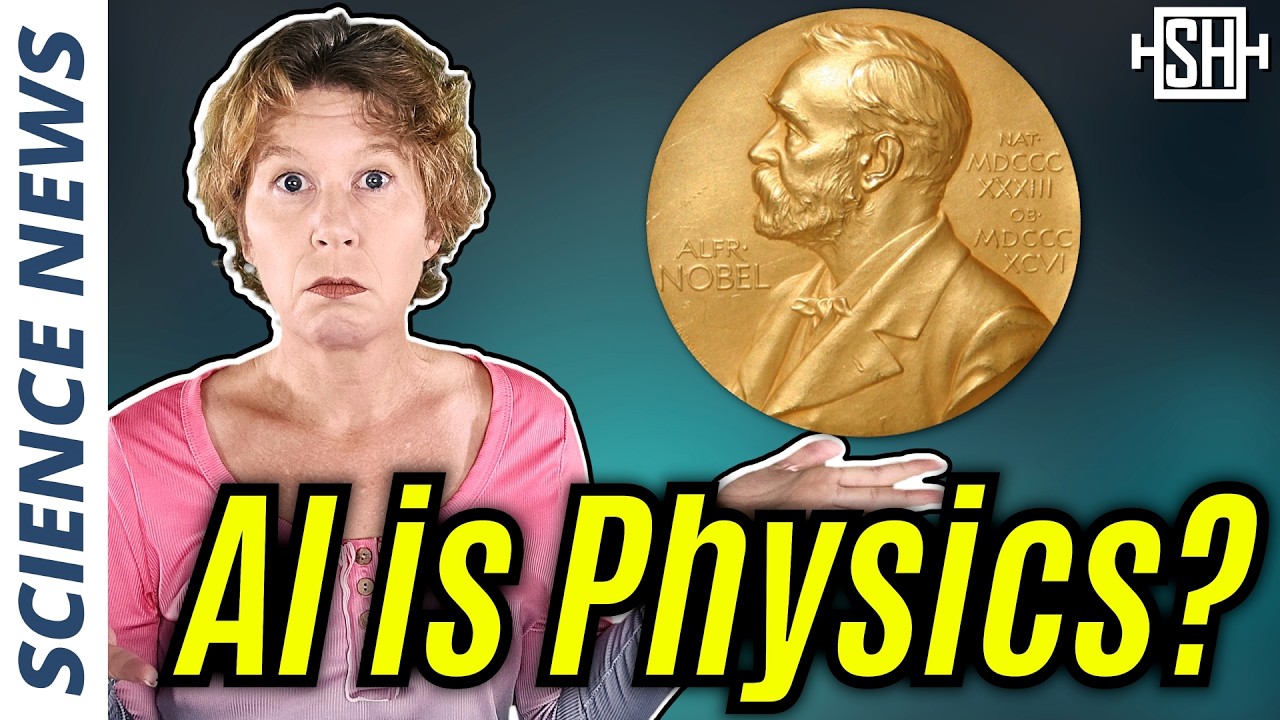The 2024 Nobel Prize in Physics was awarded to computer scientists John Hopfield and Geoffrey Hinton for their groundbreaking work on neural networks, surprising many in the physics community and highlighting a shift towards recognizing interdisciplinary contributions over traditional physics research. The speaker humorously reflects on this decision, questioning its alignment with the field of physics and emphasizing the need for the discipline to adapt to advancements in AI and machine learning.
The 2024 Nobel Prize in Physics was awarded to computer scientists John Hopfield and Geoffrey Hinton for their pioneering work on neural networks, which laid the foundation for modern artificial intelligence. This decision surprised many in the physics community, as it highlights a perceived crisis within the field, where significant advancements in AI are being recognized over traditional physics research. The speaker humorously reflects on their own incorrect predictions regarding the prize, suggesting that the award’s focus on computer science rather than physics indicates a shift in the scientific landscape.
John Hopfield is credited with developing the first neural networks, known as Hopfield networks, in 1982. These networks function by representing nodes with connections and assigning values called weights, mimicking the architecture of neurons in the human brain. Although limited in their learning capabilities compared to contemporary neural networks, Hopfield networks introduced the fundamental concepts of weights and connections that are essential to the field. Geoffrey Hinton later built upon Hopfield’s work, introducing probabilistic elements to improve learning algorithms, culminating in his influential paper on Boltzmann machines in 1985.
Hinton’s contributions significantly advanced the field of neural networks, leading to the development of deep learning techniques that utilize multiple hidden layers and backpropagation for weight adjustment. His work has had a profound impact on various domains, including physics, where neural networks are now widely used for data analysis and modeling. Despite the committee’s acknowledgment of the relevance of neural networks in physics, the speaker questions whether this award truly belongs in the realm of physics, as software development and AI do not align with traditional definitions of the discipline.
The speaker argues that the Nobel Prize committee’s decision reflects a broader trend of recognizing interdisciplinary contributions, as neural networks have applications across numerous fields, including social sciences and urban studies. However, the speaker expresses frustration that the committee has been slow to award prizes for advancements in AI and machine learning, which have been in use for decades. This delay suggests a lack of awareness or responsiveness to the evolving landscape of scientific research.
In conclusion, the speaker humorously laments the state of physics and the implications of the Nobel Prize decision, indicating a need for the field to adapt to new developments. They also promote the educational platform Brilliant.org, which offers interactive courses in science, computer science, and mathematics, as a resource for those looking to deepen their understanding of these rapidly evolving topics. The video ends with an invitation to explore the platform and a promise to return with more content in the future.
